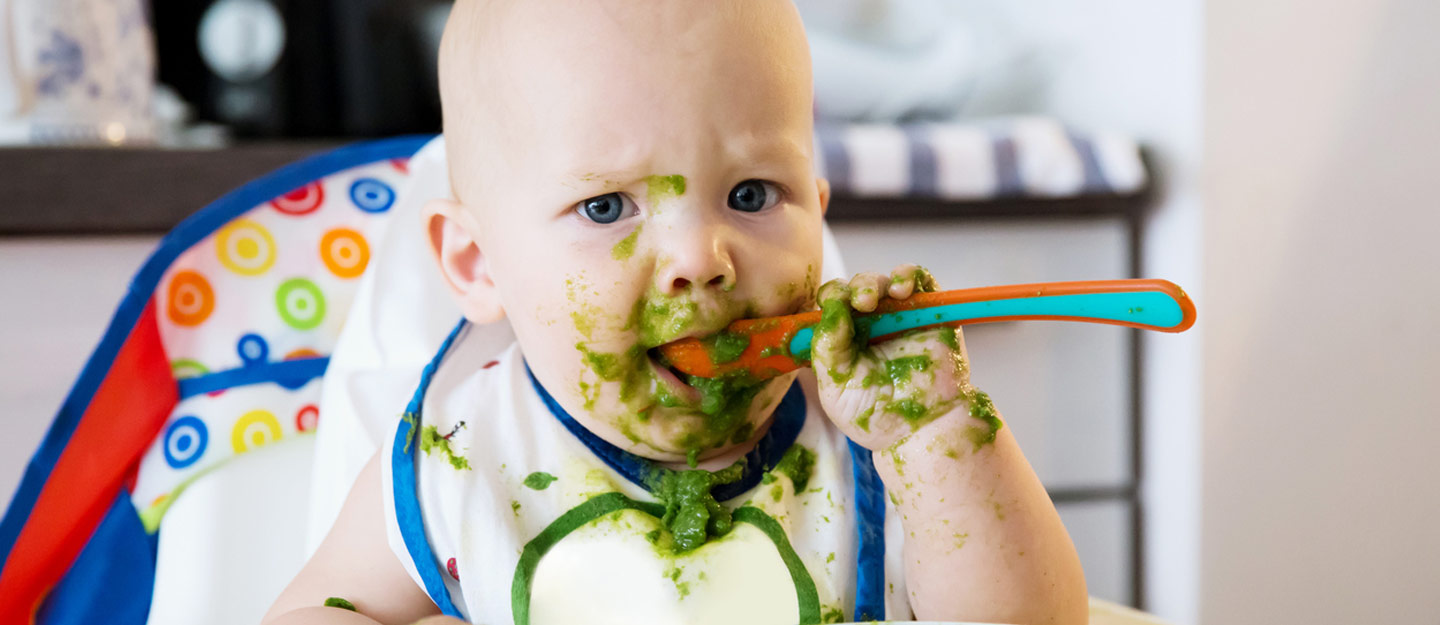When is the right time?
Introducing your baby to solid food is such a fun milestone. For new parents, just like everything else, it can be a little worrisome because it’s new and different. Below are a few key things to consider or look out for when you are thinking about starting your baby in solid foods.
Weight and Age – Most babies are ready to start on soft solid foods around six months of age. Some signs that my baby is ready for solid foods include:
Head Control – Your baby can sit in a high chair or infant seat and hold his head steady.
Open Wide – If while watching you eat, they are reaching for your food or even opening their own mouth. He may also put fingers or toys in his mouth.
Nonverbal Cues – Watch for your baby to look for cues that they are full from a meal. Are they turning away from the bottle or the breast during feedings?
Success – When you feed your baby for the first time it is going to be messy but he should be able to close his lips around the spoon and swallow food.
Baby’s First Foods
Breast milk or formula should be your baby’s main food source until at least six months. Once you see signs that your baby is ready, start out with infant cereal or pureed vegetables or fruits . Give your baby one new food at a time and wait at least 2-3 days before starting a new one.
Watch for Reactions
After trying new foods one and a time, watch for any allergic reactions like a rash, vomiting or diarrhea. If your baby has any of these reactions, stop offering that food and contact your baby’s health care provider. Some foods are more likely to cause problems at this age. Foods you will want to avoid include:
- Honey – can cause serious illness
- Egg whites – may cause allergic reactions
- Cows milk – baby can’t digest it yet
Choking Hazards
As your baby grows, you can add a greater variety of foods to his diet but you should avoid foods that are known to be choking hazards until your child is at least four. These include: hot dogs, nuts, seeds, popcorn, whole grapes, dried fruit, raw hard vegetables, candy and chunks of peanut butter. Once you introduce these foods, cut them into small pieces. Always supervise your baby when eating and get trained in First Aid so you are ready to respond if needed.
Have Fun!
You are taking the first steps to create healthy eating habits that will last a lifetime. Experiment with different foods and small amounts of seasonings – but avoid adding salt and sugar. See what your baby likes and introduce a world of flavors. You can even try making your own baby food. Don’t bother with the fancy baby food processors, just use an immersion blender. Bake a sweet potato, mix with a little water or breast milk add a dash of cinnamon and blend. You can store and freeze your creations in ice cube trays for an easy grab and go meal. Have fun!





